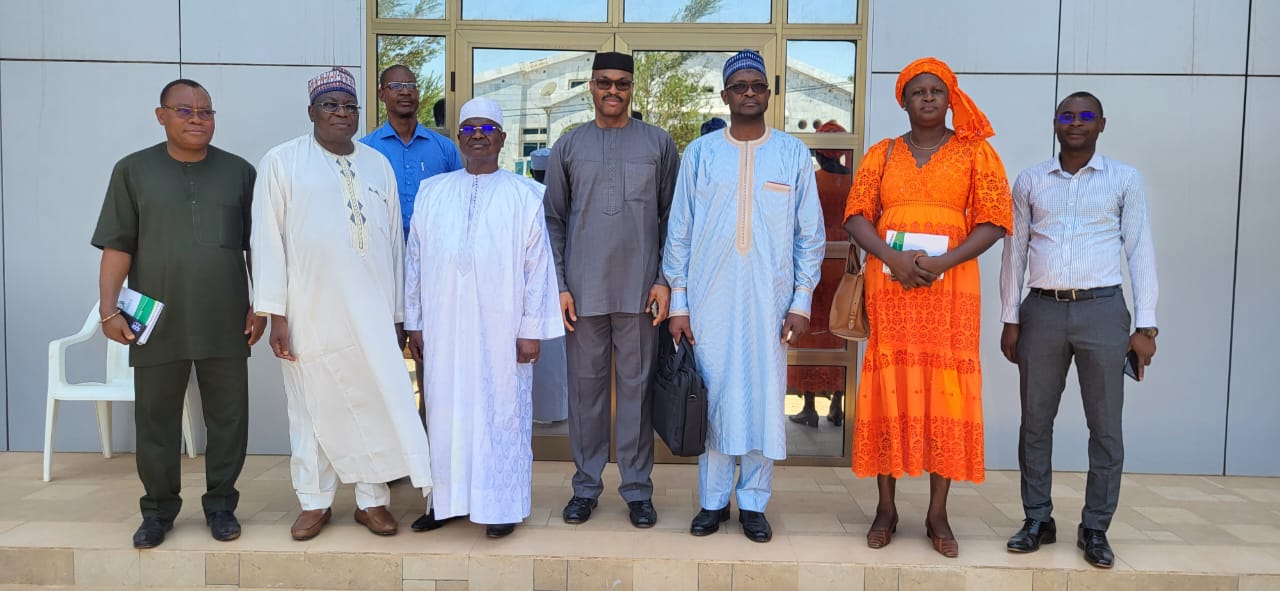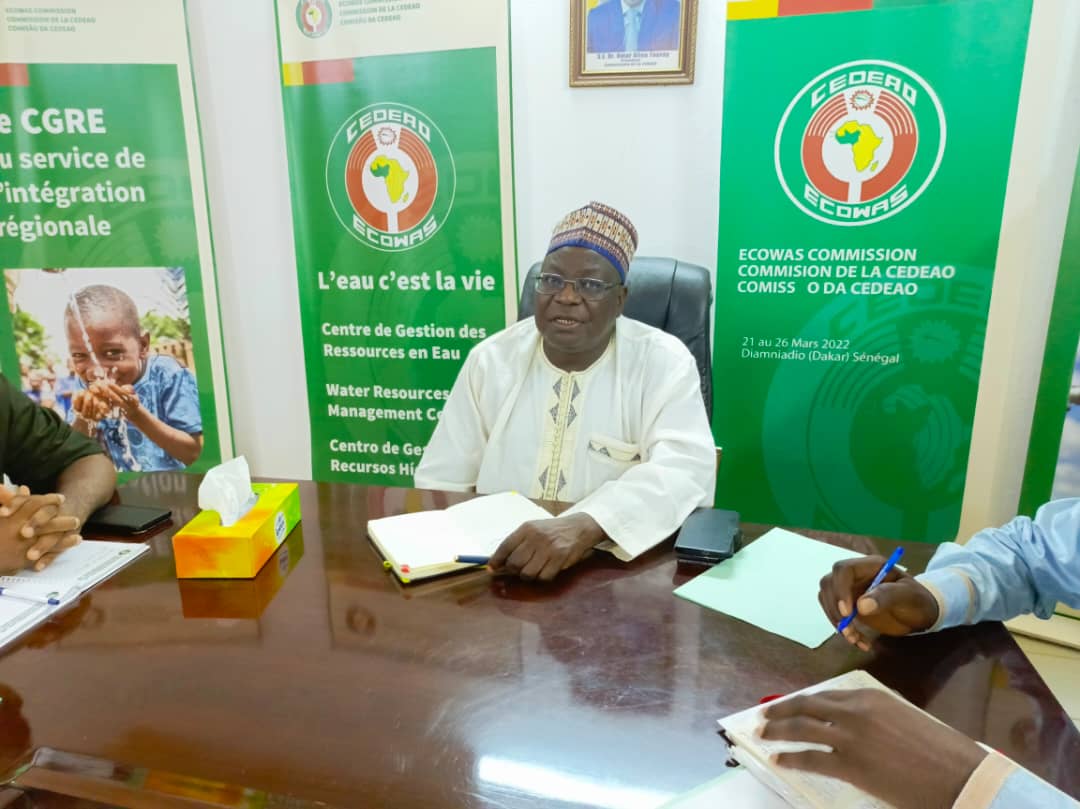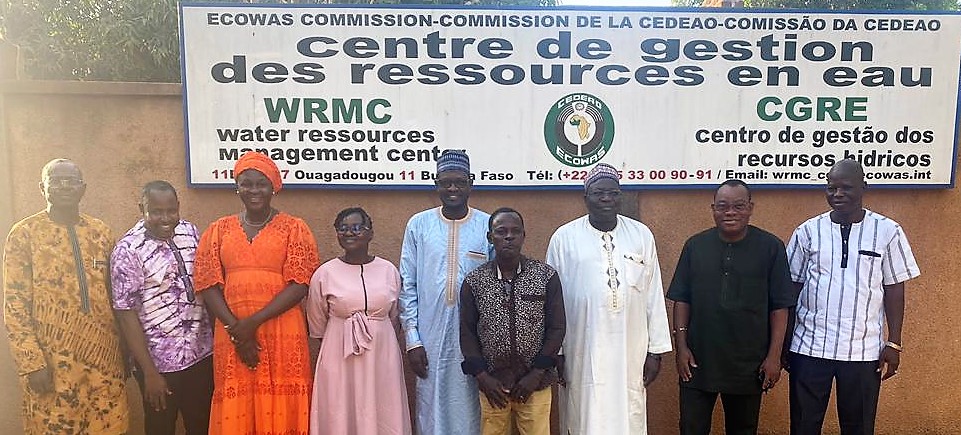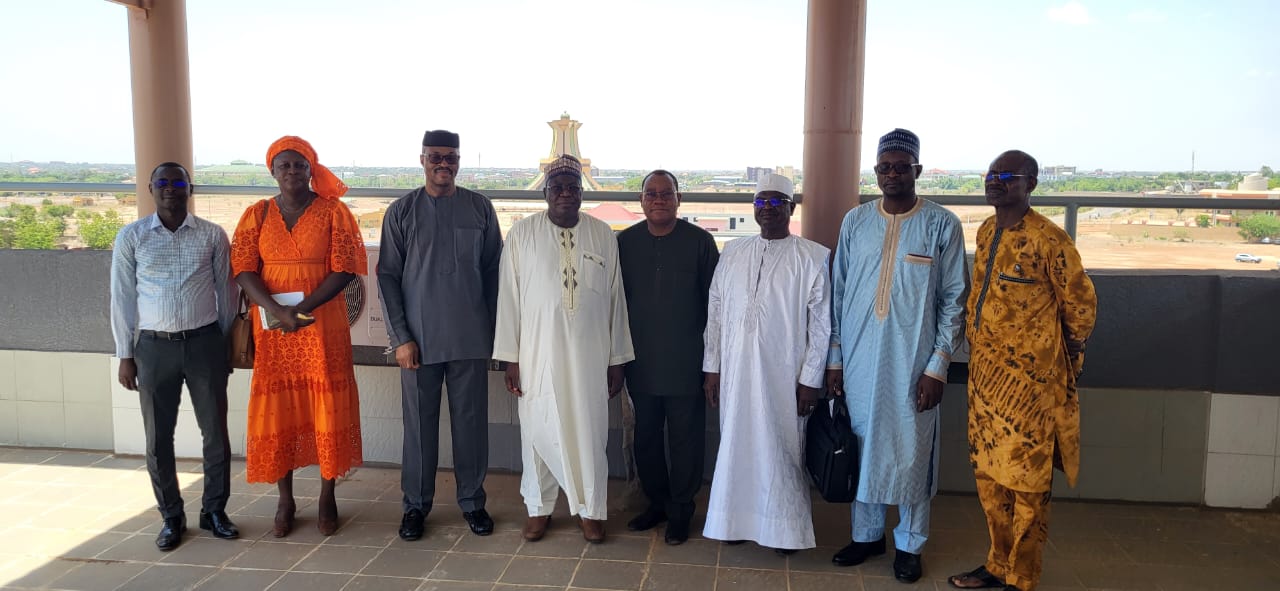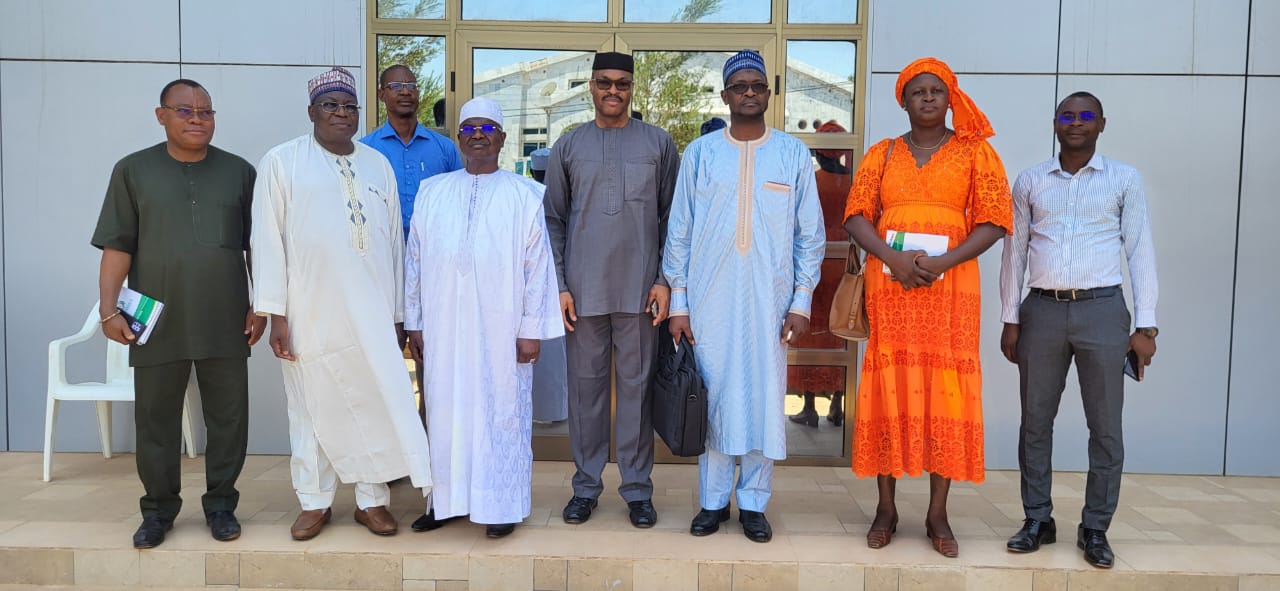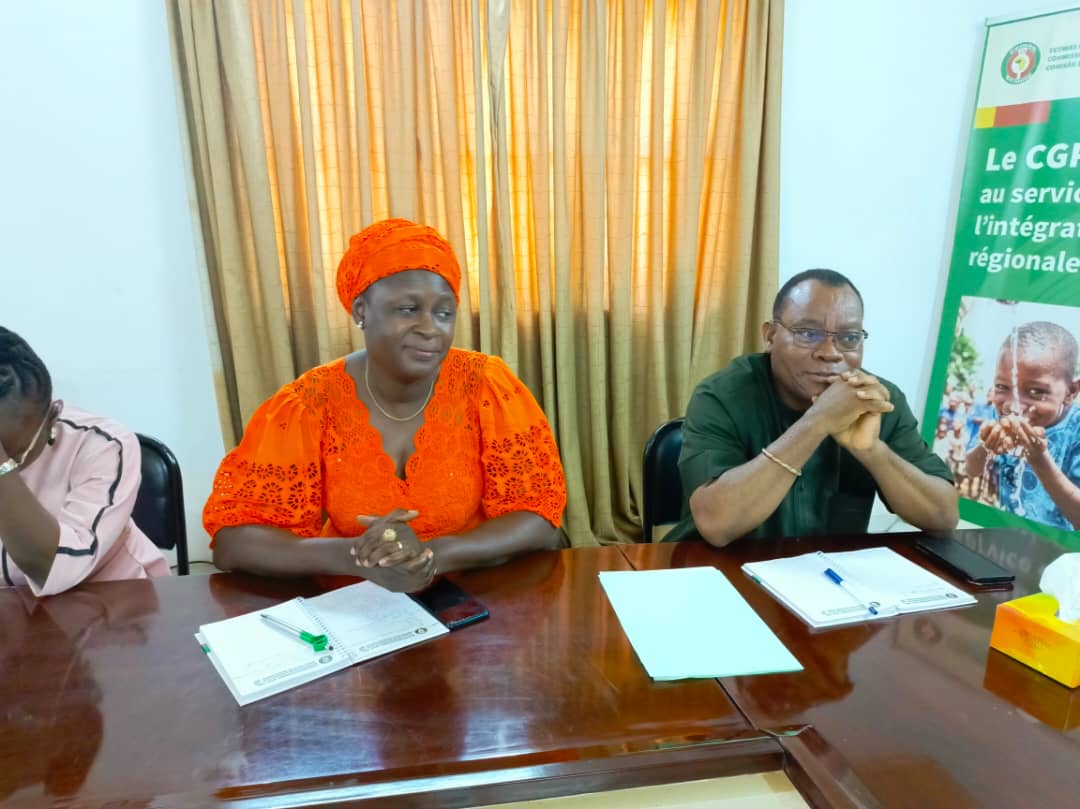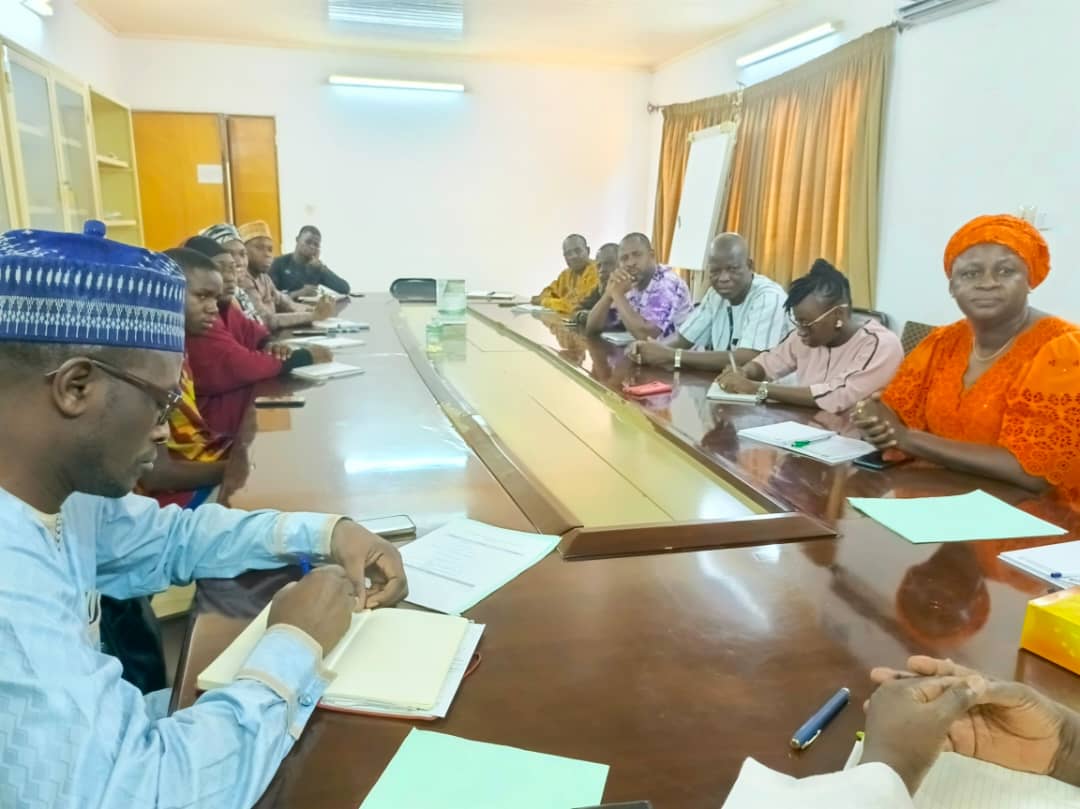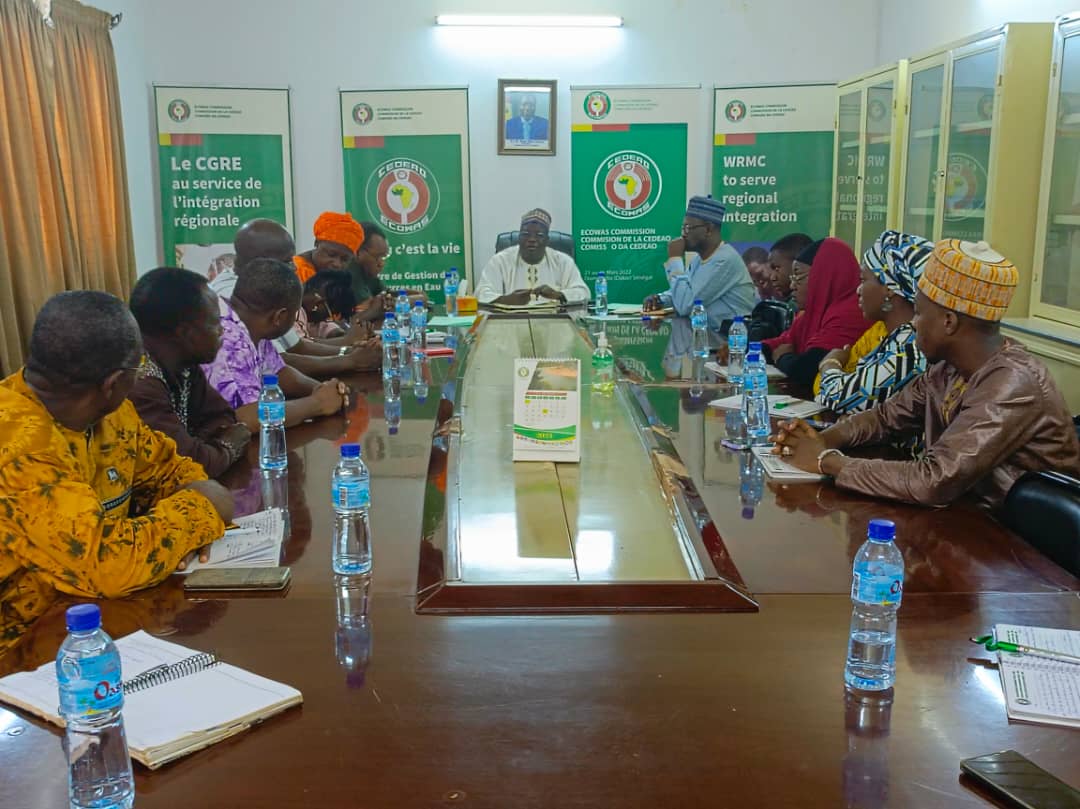Commissioner Sédiko Douka pays a working visit to Ouagadougou in Burkina Faso to Revitalize the ECOWAS Water Resources Coordination Centre (WRCC)
13 Jun, 2023Ouagadougou, Burkina Faso, 9-10 June 2023. The visit is Commissioner Sédiko Douka’s first to the ECOWAS Water Resources Coordination Centre (WRCC) since his appointment as Commissioner for Infrastructure, Energy and Digitalisation, to which the WRCC is attached. The purpose of the visit was to meet staff and take stock of their working conditions at first hand.
The WRCC, based in Ouagadougou, Burkina Faso, is the current name of the former Water Resources Coordination Centre (CEMR). The CEMR also succeeded the Water Resources Coordination Unit (UCRE) established by DECISION A/DEC.4/01/06 of 12 January 2006 adopting the Statutes of the Permanent Coordination and Monitoring Framework (CPCS) for Integrated Water Resources Management in West Africa.
Addressing the staff of the Centre, including young graduates benefiting from the annual immersion programme in ECOWAS institutions and student interns, the Commissioner for Infrastructure, Energy and Digitalisation gave a detailed presentation of the ECOWAS Commission, which, following the institutional reform of 2021, moved from a Commission with 15 statutory appointees to seven (7), namely the Office of the President of the Commission, the Office of the Vice-President and five (5) Departments headed by five (5) Commissioners.
The newly elected management team is tasked with achieving the new objectives of ECOWAS, particularly interconnectivity, which is an essential catalyst for regional integration, through the implementation of physical infrastructure programmes and projects to ensure the visibility of ECOWAS. There is a need to change the limited perception of most Community citizens, which reduces the operations of ECOWAS to political and security matters.
Regarding the smooth running of the WRCC, and with the notable lack of staff to manage programmes and projects, the Commissioner indicated that the recruitment process had already begun following internal publications. The Commissioner also recommended that staff of the Centre work together with the other ECOWAS specialised agencies to learn from their working methods, particularly regarding the recruitment of consultants, to ensure the rapid implementation of programmes and projects. For this purpose, the Centre must have its own website.
Furthermore, he recommended that the Centre regularly liaise with cross-cutting ECOWAS Directorates such as Human Resources to ensure that staff benefit from training and capacity-building programmes; Finance for budget execution; General Administration for procurement needs; and the Directorate of Strategic Planning for monitoring and evaluation.
Commissioner Douka in his address also urged the WRCC to pursue an ambitious policy of mobilising resources to finance water sector programmes and projects and address the related challenges.
Addressing the young graduates benefiting from the ECOWAS immersion programme and the Centre’s trainees, the Commissioner conveyed a message of encouragement and urged them to be creative, proactive and patient in preparing to succeed on the job market.
The Commissioner took advantage of his visit to Ouagadougou to tour the new state-of-the-art building, “popularly known as ECOWAS House”, dedicated to ECOWAS by the Government of Burkina Faso. The three-storey (ground+3) building, located in the Ouaga 2000 district, will house the three offices of the ECOWAS Commission in Ouagadougou, namely the Water Resources Coordination Centre, the Youth and Sports Development Centre and the ECOWAS Permanent Representation in Burkina Faso, as well as the WAHO Liaison Office.
A guided tour of the building took place in the presence of H.E. Tiéna Coulibaly, ECOWAS Resident Representative to Burkina Faso, and the Director of the Youth and Sports Development Centre (EYSDC), Mr Francis Chuks Njoaguani, Ag. Director of the Water Resources Coordination Centre (WRCC), Mr Kouassivi B. Djeri-Alassani, and members of staff from the Commission’s three offices in Ouagadougou.



